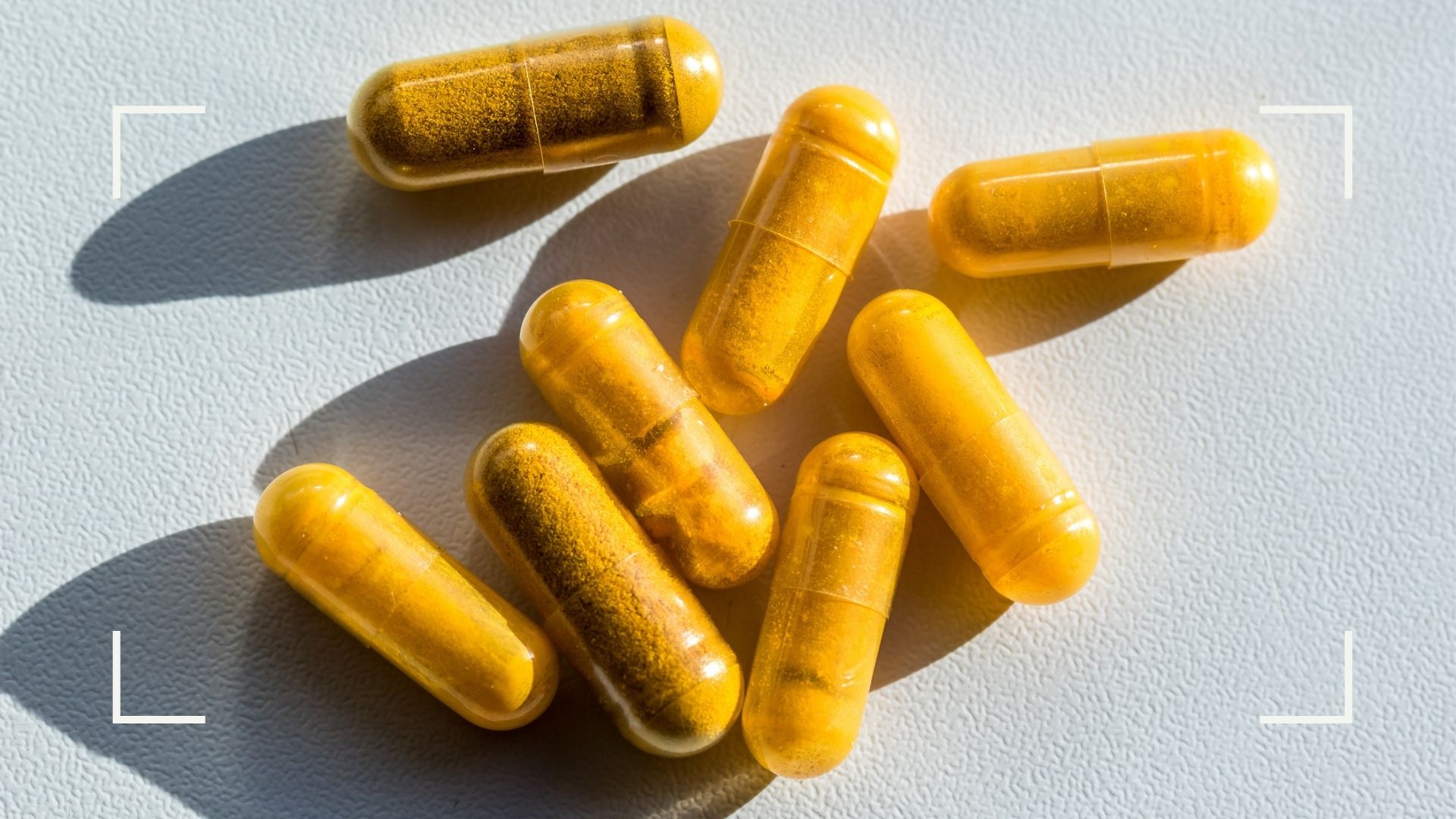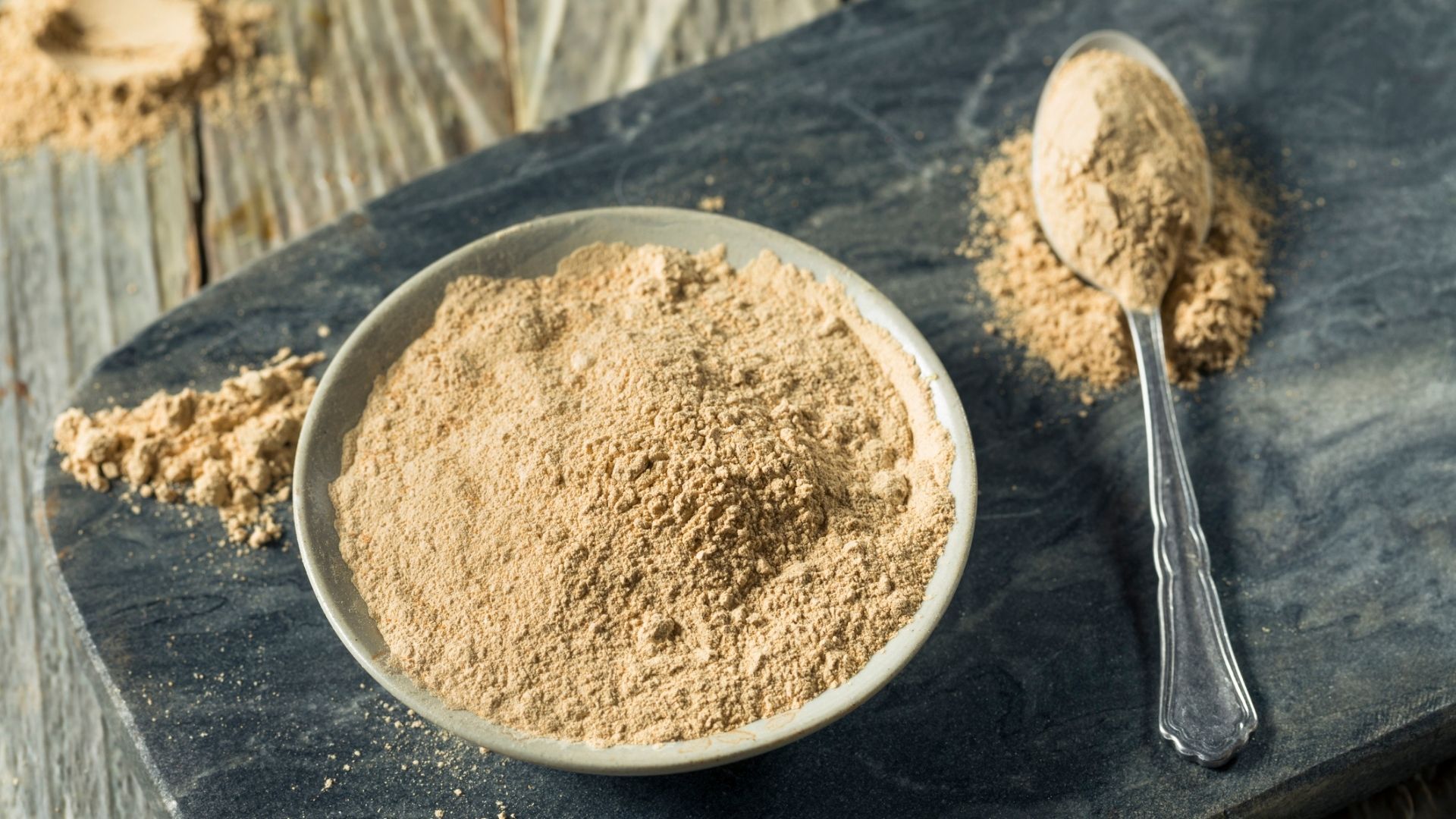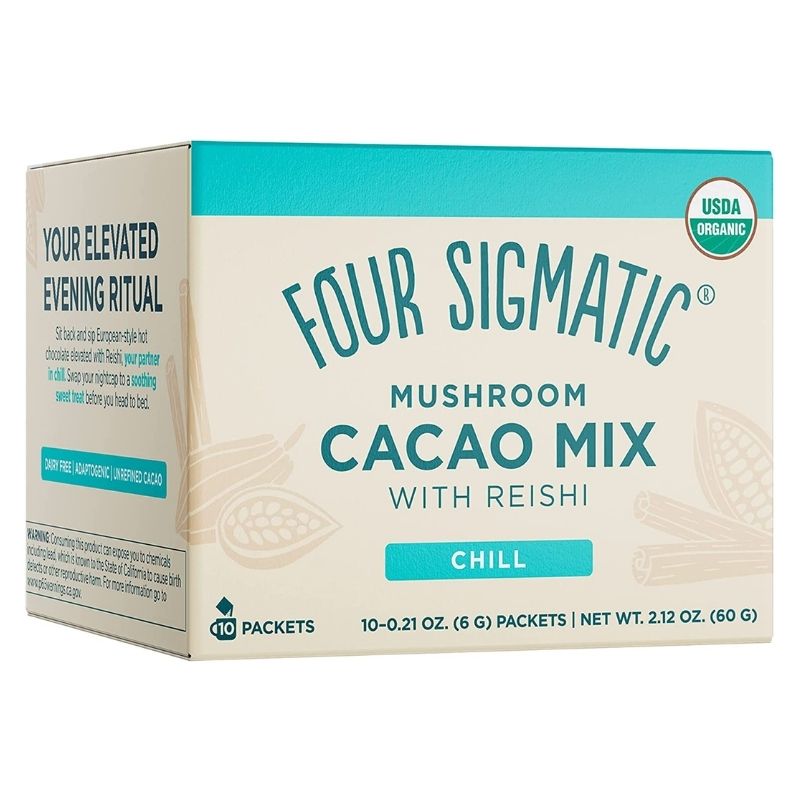What are adaptogens and do they really work?
What are adaptogens? A nutritionist explains all you need to know about the latest buzzword in wellness


What are adaptogens? They are the new must-try products in the wellness world it seems. Despite being around for centuries, it’s only as we focus more on the damaging impact of stress in our daily lives that they’ve come into the mainstream.
After being dubbed the ‘new CBD’ thanks to their whole host of health benefits, it’s not surprising that brands who’ve made adaptogens their specialty are seeing rocketing sales as we look to products to manage everything from stress levels to our immune systems.
So what are adaptogens and do they really work? As one of the biggest wellness trends for 2022, we take a deep dive into them and whether their reported nutritional properties actually make a real difference when it comes to how to deal with stress.
What are adaptogens?
Adaptogens are herbs and fungi, traditionally used in Ayurvedic and Chinese medicine, that help the body deal with stress. As Clarissa Berry, clinical nutritionist at DIRTEA explains, “What’s brilliant about them is that they don’t bring you up or down, instead they strengthen your resilience and regulate your body’s systems to be in a state of balance. They help you adapt to what life throws at you.”
The herbs are often potent and there’s a diverse selection of them, all known for their stress-busting properties and additional benefits for the mind and body. There are different adaptogens to support skin health, immunity, mental performance, anxiety, energy levels, digestive health, and sleep quality.
Some of the most popular ones include:
- Cordyceps
- Ashwagandha
- Rhodiola
- Lion’s Mane
- Panax (otherwise known as Asian Ginseng)
- Maca
“The world we live in is highly stressful,” Berry says. “On a daily basis, we encounter environmental, financial, emotional and physical stressors, all of which add up and place a huge strain on the body. An overflowing inbox, an argument with a friend, outstanding bills, pollution, food intolerances, or a heavy gym session. All of these contribute to our stress load and it’s a lot for the body to cope with.”
Sign up for the woman&home newsletter
Sign up to our free daily email for the latest royal and entertainment news, interesting opinion, expert advice on styling and beauty trends, and no-nonsense guides to the health and wellness questions you want answered.
Over time, this affects our ability to function as our bedtime routine goes into disarray and our hormone levels, which severe stress tends to disrupt due to excess cortisol in the body, fluctuate. In turn, our nutritionist says, this leads to burnout.
For those experiencing the early symptoms of perimenopause it can be particularly concerning as there's a strong link between menopause and anxiety, with the body already producing fewer hormones than it used to.
“Adaptogens can increase our ability to cope with and react to stress,” she adds. “They strengthen the body rather than acting as a crutch.”

Do adaptogens work?
Yes, adaptogens have been proven to assist in the general functioning of the body. They're certainly not a replacement for adequate nutrition with plenty of vitamins and minerals, but they can supplement your diet to offer additional benefits.
While Panax, Siberian Ginseng, Rhodiola and maca were the ones to be identified as "true" adaptogens in a large review by Chinese Academy of Medical Sciences in 2018, there is more and more evidence coming out to suggest that other herbs have major adaptogen benefits.
The review on the whole found that adaptogens can enhance the human body's resistance against a whole range of external stressors in a multi-targeted and multi-channel network-like system, however. It looked at 99 studies from universities including Chung Shan Medical University and University of Colorado Health Sciences Center, and found that adaptogens are especially beneficial for the nervous system, endocrine system and immune system, as well as the communication system that links the hypothalamus in the brain with the pituitary and adrenal glands, both responsible for hormone production.
Much like everything though, once your body gets used to the adaptogens, they’ll start to wear off. “I’d also suggest switching them up or having a short break every three to six months to maximise their effects,” Berry warns.
It's also important to be aware that different adaptogens are suited to different people. “So firstly I’d recommend finding the one or ones that feel best to you," sshe says. "Stick to the recommended dosage and take them daily for at least 1 to 2 months to experience the full benefits.”
Do adaptogens have side effects?
Generally, no. However, a study from Zhejiang Chinese Medical University found that some herbal supplements like adaptogens can contain unknown ingredients if not consumed in their purest form. Even when they are, some adaptogens can interact with prescription medications, causing negative side-effects including preventing the medication from working.
They are very safe for most people, nutritionist Clarissa Berry says. "However, it’s not recommended to take them while pregnant due to insufficient safety studies and some may also interfere with certain medications. A good rule of thumb is to always consult a health professional before taking a new supplement.”

How to add adaptogens to your diet
Much like how we try to incorporate the best protein powders to supplement our diet, you can add adaptogens to your meals through additional powders or having tea made from the herb. However, to fully feel the effects of these as Berry said, you'll need to continue the regime of consuming them for at least two months.
As well as powders and tea, there is a range of healthy coffee alternatives that include adaptogen blends - from the likes of DIRTEA and London Nootropics, to name a few.

Hoping to relax your mind in a new way? London Nootropics offer Zen Coffee, a blend of CBD and Ashwagandha to help the body fight against stress, tension and irritability. Includes barista-style coffee among the ingredients too, so you'll still be able to enjoy your daily pick-me-up. £15 - with international shipping at £5 flat rate.

Adaptogen coffee is one of the biggest coffee trends of the year, helped by brands like DIRTEA. While it doesn't contain any actual caffeine, this cordyceps mushroom coffee supports energy, performance and endurance naturally. One for those who love a cup of decaf post-12pm. $37.38 / £29.99

If you love a hot chocolate in the evening, give Four Sigmatic's mushroom cacao mix with reishi mushrooms a go. Formulated with pure powder, it's a great one for those who struggle to sleep at night due to its caffeine-free chocolate flavorings and other natural ingredients. $11.01 / £8.82
Alternatively, you can take adaptogen supplements.
Adaptogen supplements
This is probably the most common way of taking adaptogens, along with our extra doses of iron and vitamin D. Adaptogen supplements can be purchased at all the standard health food stores or online.
However when it comes to supplements in general, whether it's sleep supplements or adaptogens, be aware of what’s actually in them, and how much. While the supplement industry is regulated under food law in the UK, there's no need for them to be licensed or registered with the government. Unlike describing something as 'high-protein', you don't need a certain amount of adaptogen in a product for it to be labelled as such, as long as it's not misleading.
It is also regulated in the US, however, according to a report by John A. Burns School of Medicine, many challenges remain in enforcing regulation and many supplements fall through the gaps.
For the best results from the actual adaptogens, it’s always best to get them in their pure forms like via tea or powder, rather than in capsule form.
Is turmeric an adaptogen?
Yes, turmeric is an adaptogen. It’s a popular addition to food for its flavor, taste and perceived health benefits. Used in India for thousands of years before making its way to the West, science has recently begun to back up the traditional claims that turmeric—and its primary compound curcumin—has major health benefits.
A review of all the research on curcumin’s health benefits from Central Michigan University found that this adaptogen can help when managing various inflammatory conditions, including those linked to over-exercising (one of the biggest workout mistakes to make). It’s also been shown to help with metabolic syndrome, arthritis, anxiety, and hyperlipidemia.
The same research found that a relatively low dose is also beneficial for those without any known adverse health conditions, to supplement the proper functioning of the nervous system and immune system.

Grace Walsh is woman&home's Health Channel Editor, working across the areas of fitness, nutrition, sleep, mental health, relationships, and sex. She is also a qualified fitness instructor. In 2025, she will be taking on her third marathon in Brighton, completing her first ultra marathon, and qualifying as a certified personal trainer and nutrition coach.
A digital journalist with over seven years experience as a writer and editor for UK publications, Grace has covered (almost) everything in the world of health and wellbeing with bylines in Cosmopolitan, Red, The i Paper, GoodtoKnow, and more.
-
 Celebrities who overcame scandal and came back stronger than before - from Jane Fonda to Martha Stewart
Celebrities who overcame scandal and came back stronger than before - from Jane Fonda to Martha StewartScandals, controversies and fallouts can really harm a celebrity's reputation, but these stars proved there's power in putting in the work for a second shot
By Jack Slater Published
-
 Ranvir Singh’s denim midi dress is perfect for April date nights
Ranvir Singh’s denim midi dress is perfect for April date nightsYour favourite jeans will always be an easy outfit staple but denim dresses have the same comfort factor and more elegance.
By Emma Shacklock Published